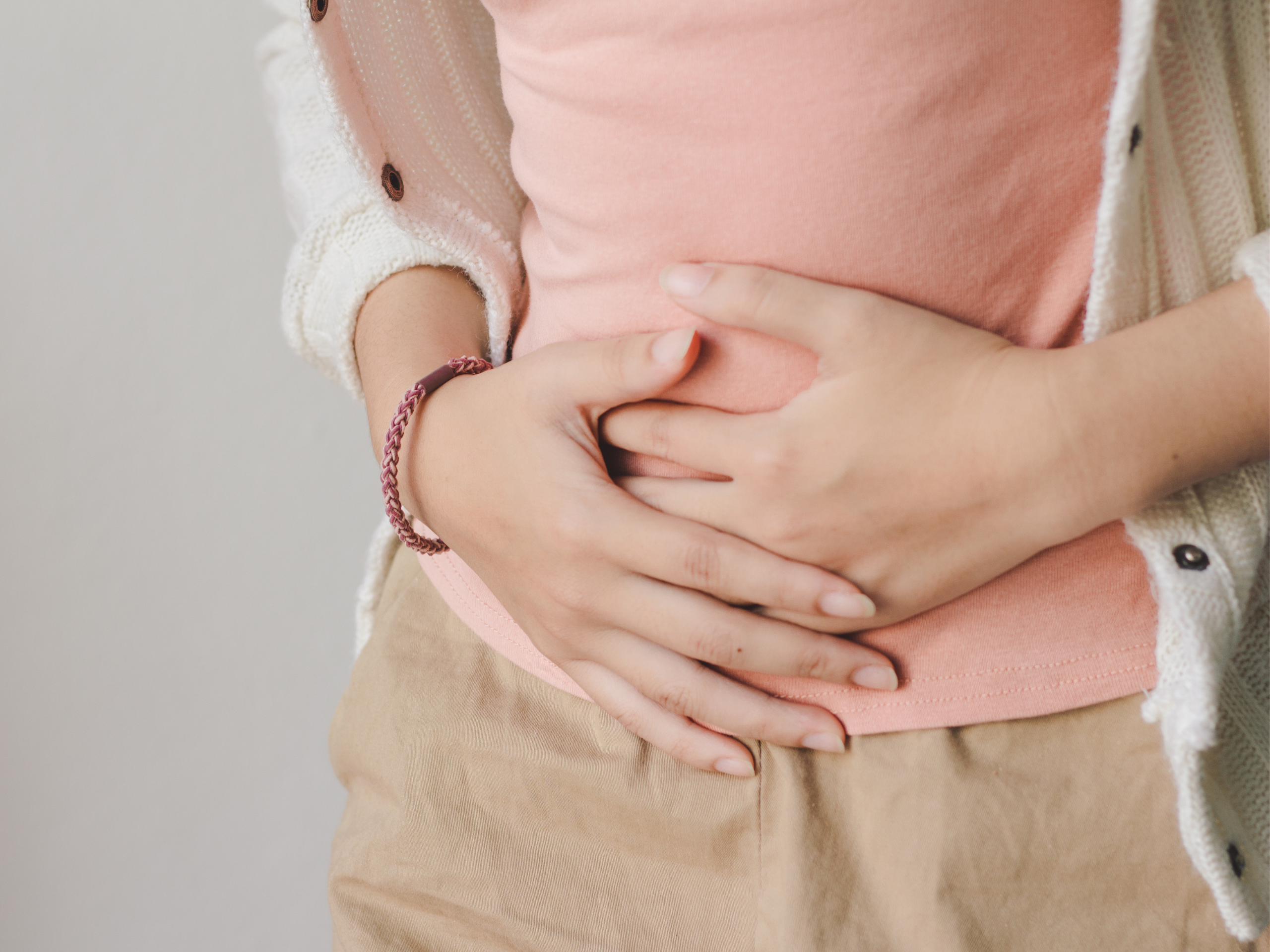What Is Bloating?
Bloating occurs in your stomach, happens when your gastrointestinal tract is filled with air or gas. You feel as if you’ve eaten a big meal and there is no more room in your stomach, which may look bigger and distended. It can be very uncomfortable.
The uncomfortable feeling that sneaks in after a large meal, most of us have all experienced at least once.
What Causes Bloating?
Do you suffer from bloating often? It may be as a result of harmless habits. There are many reasons you may feel bloated. Most causes are simple, harmless, and easily treatable. You’re not alone!
Read on to find out what causes bloating, why you may be bloated, and what you can do about it.
There are several causes of bloating. In in “normal” conditions, bloating is often a temporary feeling of fullness, usually due to intestinal gas.
For example: Carbohydrates break down and fiber ferments which produces gas, gas expands and causes bloating. Abdominal distension means your stomach physically looks larger, this is normal and is temporary after you eat or as food is digested. Typically, with bloating, it’s normal to feel full or even gassy, this may pass hours later and is relieved by having a bowel movement, passing gas, drinking warm beverages to relax the digestive system, letting time pass, or even exercising, such as waking.
Things that may cause bloating
- Drinking carbonated beverages (Seltzer water, sodas)
- Eating too fast
- Not chewing your food thoroughly
- Not eating enough fiber
- Not drinking enough water
- Not having “regular” bowl movements
- Feeling stressed
- Smoking
- Eating large or oversized portions
- Taking certain medications
- Eating too late before bedtime
Which Foods Affect Bloating?
Some problem foods are more likely to cause bloating:
1. Sugars. Sugar alcohols, such as mannitol and xylitol (used to sweeten sugar-free candy and chewing gum) can trigger bloating. This is particularly common in people with IBS. Foods that contain high fructose levels which include corn syrup, sodas, snacks and some condiments. Using pure maple syrup as a sweetener may be an alternative sweetener.
2. Lactose. Lactose is a form of sugar found in dairy products, such as cow’s milk, yogurt, soft cheeses, cream, ice cream, butter, custards and pudding. Some people are lactose intolerant, meaning their digestive systems struggle to break down lactose efficiently, and that can lead to not just bloating, but other digestive issues such as cramping and diarrhea. Low-lactose cheeses like Swiss and plant-based milk options can be good alternatives.
3. Fatty foods. Greasy, fatty foods, such as fried chicken, cheeseburgers, onion rings and french fries can make you feel bloated as they linger in your stomach.
4. Excess salt or sodium. Foods high in salt – including many processed and convenience foods – can cause your body to retain fluid.
5. Carbonated drinks. Drinking soda, seltzer water, particularly through a straw, can make you swallow excess air, and too much air in your intestines leads to bloating
Common, healthy whole food choices that commonly cause gas and bloating.
Whole foods that cause bloating
- Eating beans, legumes
- Cruciferous vegetables
- Raw kale
- Fiber-rich chia and flax seeds
- Fiber rich foods in general
Is bloating normal?
Bloating can also be caused by health conditions such as IBS, food intolerances or sensitivities, celiac disease, lactose intolerance, acid reflux, PCOS, certain types of cancer, hernia, IBD, h pylori, intestinal obstruction, and more.
- For individuals with IBS: Certain carbs, short chain carbohydrates, certain individuals have trouble digesting are more likely to lead to abdominal discomfort. These carbs are known as FODMAPs and are associated with gas and bloating. FODMAP stands for fermentable oligosaccharides, disaccharides, monosaccharides and polyols—food items people would avoid if following a LOW FODMAP diet.
If these symptoms are common
- uncontrolled vomiting
- uncontrolled diarrhea
- constipation, no bowel movements for days at a time
- blood in your stool or in vomit
- dizziness, light headiness
- nausea with every meal
- painful bowel movements
- bloating with every meal you eat
You many want to consider seeing your doctor or a dietitian (like myself).
Otherwise, if bloating comes and goes, then you’re most likely experiencing a normal process to digestion. You may wonder why you get bloated after eating “healthy” foods? Well, that’s normal! Some whole foods are more likely to cause you gas or bloating due to their starch content, sugars, or fiber.
If you need a little temporary relief to ease bloating, here are some suggestion: grab a cup of warm-hot peppermint tea (if you have acid reflux, go for ginger instead) which may soothe digestion and release gas, take a short 10 minute walk, do some light core stretching, try to use the bathroom if you need to go, drink plenty of water, take 5 minutes of deep breathing to decrease stress, and make sure at your next meal you chew the food properly!
Bottom Line
Bloating occasionally is part of our normal digestion. Our bodies sometimes they do their own thing and that’s okay!
Pay attention and see if you are experiencing something out of the normal or reach out to your dietitian or doctor if bloating is an everyday day challenge you face and you find no relief, if it’s painful, or interfering with your daily life.
If you find what may be triggering your bloating, seek out a dietitian to get you on a plan and to educate you.

